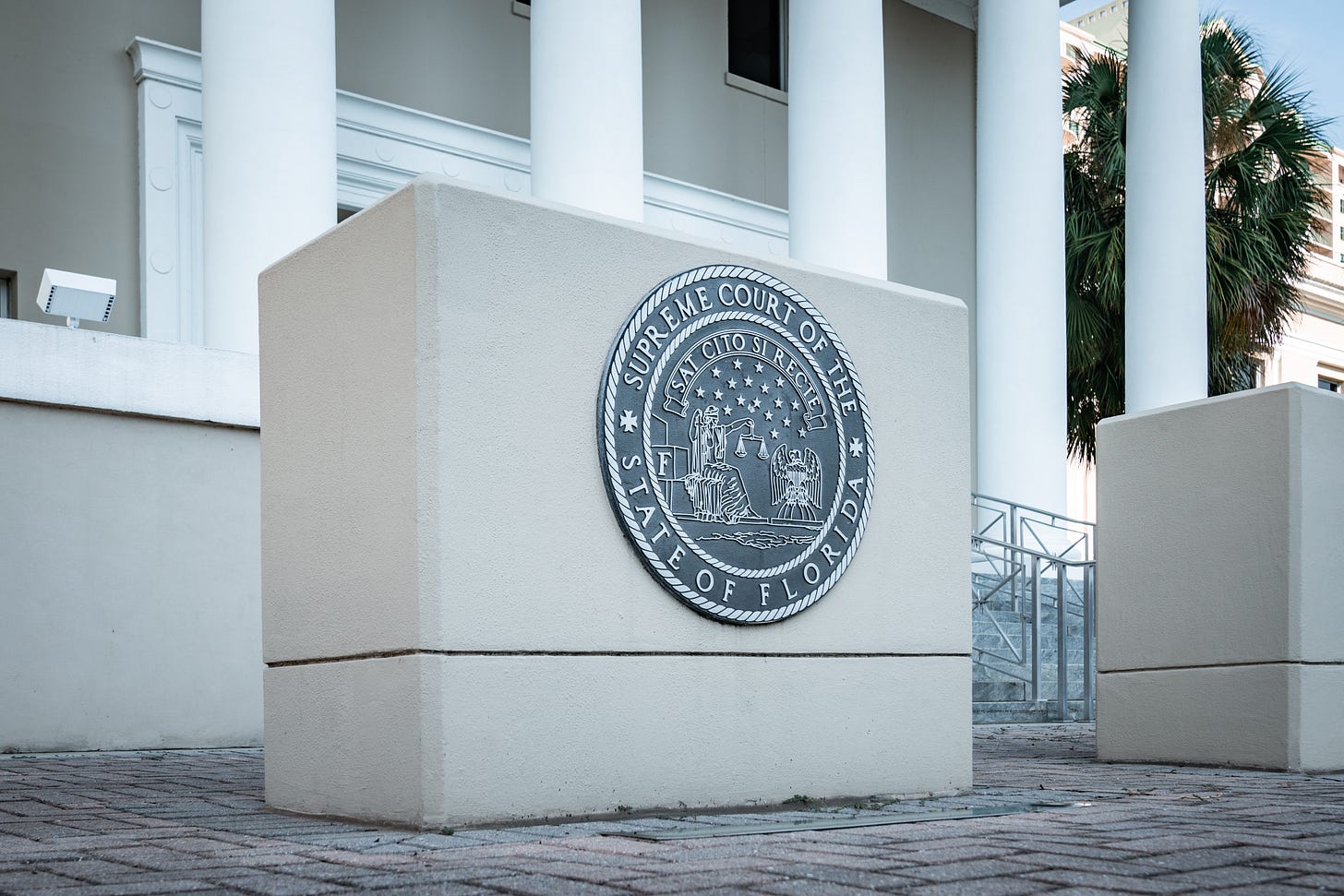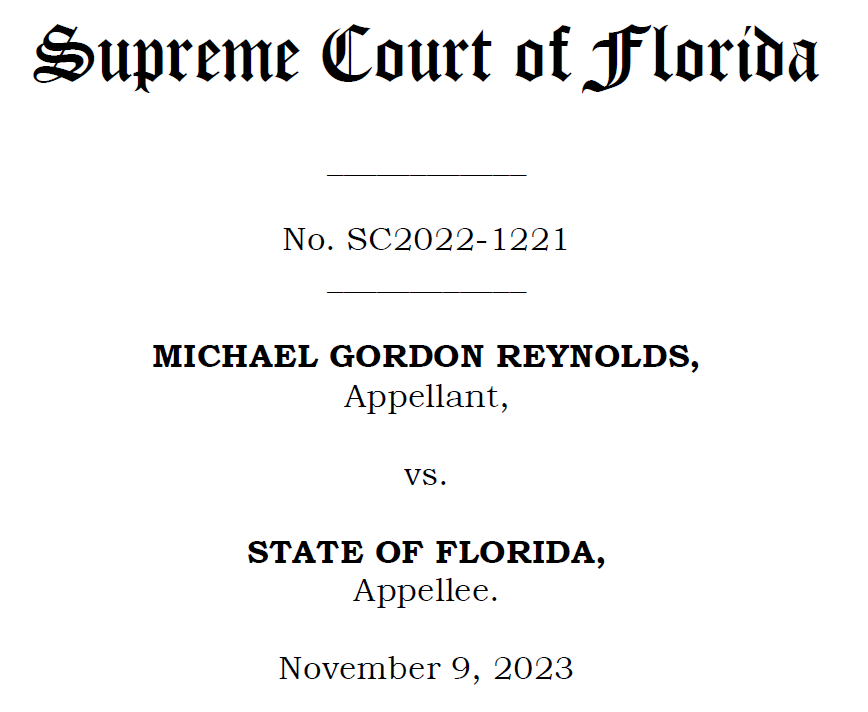Florida Supreme Court affirms denial of Michael Reynolds' request for DNA testing
Reynolds is under two sentences of death. This was his second request for DNA testing. The Court unanimously affirmed the trial court's denial of his request.
In today’s regular release of opinions, the Florida Supreme Court issued its decision in Reynolds v. State, No. 2022-1221.

Reynolds was convicted in 2003 of two counts of first-degree murder and one count of second-degree murder. Reynolds waived his right to present mitigation, and the jury unanimously recommended death on both counts of first-degree murder. The trial court followed the jury’s recommendations and imposed two sentences of death. The Florida Supreme Court affirmed Reynolds’ convictions and sentences on direct appeal. Since then, Reynolds has also “unsuccessfully sought postconviction relief on several occasions.”
Most recently, Reynolds “filed a second motion requesting DNA testing.” According to the Court, “[a]ll the items he requested to be tested in the successive motion were documented at the time of his trial, and a majority of them were the subject of his prior unsuccessful . . . motion” for DNA testing. The trial court summarily denied the successive motion, finding it procedurally barred and insufficiently pled.” Reynolds appealed.
In a per curiam decision issued today,1 the Florida Supreme Court agreed with the trial court, concluding that Reynolds’ claim “is both procedurally barred and without merit.” The Court found the motion is procedurally barred because it again seeks testing that Reynolds’ unsuccessfully sought in 2013. As to the items that were not included in Reynolds’ prior motion, the Court found the request is still barred because the “items were known to Reynolds at the time of his trial.”
On the merits, the Court found that Reynolds failed to show he’d be entitled to relief if the DNA testing was conducted, writing:
Inconsistent with Reynolds’s contention that DNA evidence will exonerate him—which is based on his premise that DNA evidence was the primary reason for his guilt—we have repeatedly found that Reynolds’s convictions do not depend solely on DNA evidence.
. . . .
Given the evidence presented at trial, there is no reasonable probability that additional testing would lead to an acquittal.
Further, aside from guilt, the Court determined that Reynolds “failed to show that there is a reasonable probability that DNA testing would result in a reduced sentence.” Reynolds’ theory for this argument relied upon relative culpability. However, the Court notes that, while Reynolds’ appeal was pending, the Court “abandoned that doctrine.”
The decision was unanimous with Justice Sasso not participating.
News Articles
In recent months, the Court has gone back-and-forth between authored and per curiam opinions in capital cases.




